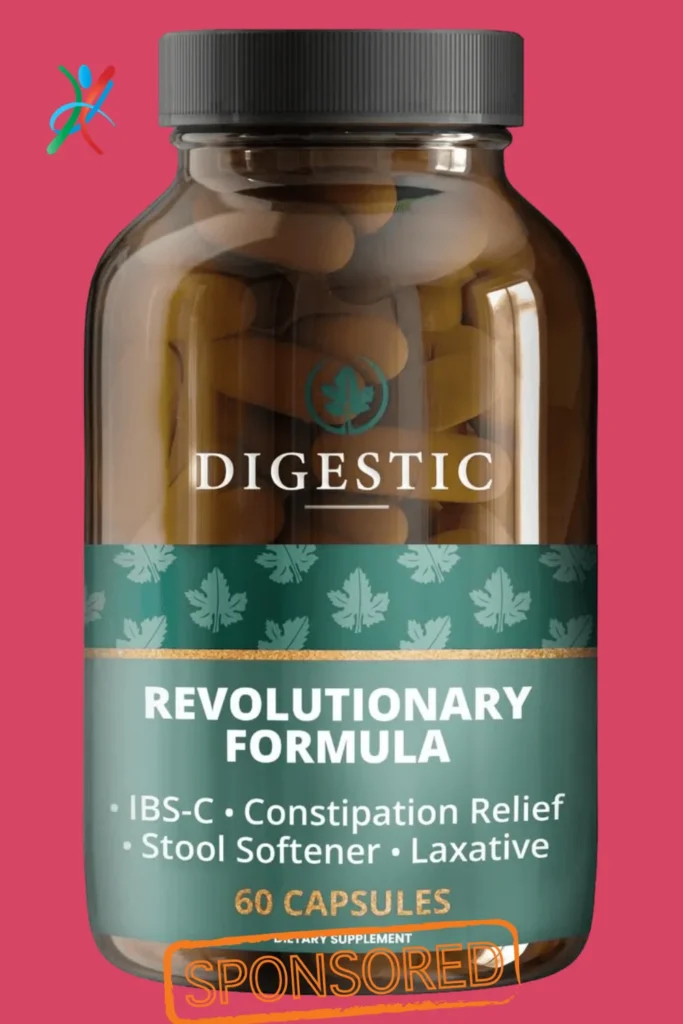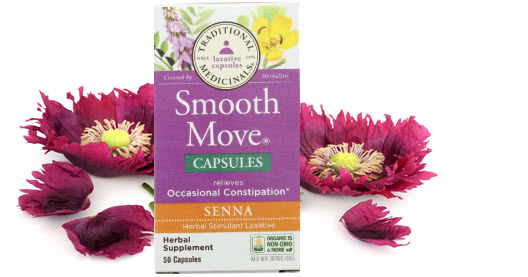Home Remedies for Constipation
When the discomfort of constipation strikes, immediate relief can’t come quickly enough.
Chronic constipation isn’t just an inconvenience; it’s a condition that can severely impact your quality of life.
Let’s delve into an array of time-tested home remedies that promise to ease your discomfort and restore balance to your digestive system.
Chronic constipation is a puzzle often pieced together by lifestyle choices and physiological factors, leading to a significant toll on your overall well-being.
As we begin to unravel the mystery behind immediate constipation relief, choosing the right remedy becomes paramount for your health and comfort.
This article will guide you through various home remedies—encompassing stimulant laxatives, fiber supplements, and natural alleviators—providing the knowledge you need for prompt and effective relief.
Table of Contents Home Remedies for Constipation
Understanding Chronic Constipation
Chronic constipation is more than just an occasional inconvenience; it can be a serious impairment to one’s health and quality of life.
Characterized usually by infrequent bowel movements, difficulty during defecation, or the passage of hard stools, chronic constipation may be caused by a range of health conditions.
These include irritable bowel syndrome (IBS), hypothyroidism, the effects of particular medications, or more severe issues like bowel obstructive diseases and colon diseases.
Identifying the underlying causes is crucial, as the effectiveness of treatments, including stimulant laxatives and enemas, may hinge on the specific reason for the constipation.
Instead of solely relying on treatments, patients with chronic constipation are often encouraged to implement lifestyle changes.
Regularly consuming high-fiber foods, engaging in physical activity, ensuring adequate fluid intake, and managing stress levels could foster healthier, more regular bowel movements.
By contrast, severe constipation requires medical attention and possibly more advanced interventions, such as prescription medications, digital disimpaction, or even surgery in extreme cases.
Definition of Chronic Constipation
Chronic constipation is not just a temporary issue but a persistent condition lasting over four weeks.
It’s often attributed to a deficient intake of fiber or water but can also be a side effect of certain health conditions or the result of using particular medications.
The use of prescription medications may be explored only after other solutions, such as dietary changes and over-the-counter remedies, have proven ineffective.
Warning signs that warrant a visit to a healthcare professional include sudden variations in bowel habits, blood in the stool, severe abdominal pain, along with other significant symptoms like nausea or vomiting, or if there is a family history of colon cancer.
Recognizing these symptoms early can prevent the further deterioration of one’s mental and physical health.
Common causes of chronic constillation
The triggers of chronic constipation are diverse and can range from inflammatory bowel diseases like Crohn’s or celiac disease to neurological disorders such as nerve damage or stroke.
Other contributing factors include lifestyle-related issues like inadequate hydration, a diet low in fiber, a sedentary lifestyle, and ignoring the natural urge to defecate.
Medical conditions such as diabetes, hypothyroidism, and pelvic floor dysfunction are also known to contribute to chronic constipation.
Additionally, certain medications, including antidepressants, blood pressure medicines, and supplements like iron, plus the overuse of laxatives, can be common culprits.
Impact of Chronic Constipation on Overall Health
The effects of chronic constipation can extend far beyond physical discomfort.
It can profoundly affect an individual’s quality of life and lead to significant health concerns.
Ongoing issues with constipation may lead to unintended weight loss or severe abdominal pain.
Moreover, a chronic condition can increase the risk of damage to nerves in the colon.
Because of these potential risks, it is paramount that individuals experiencing regular bouts of constipation seek medical evaluation and support.
Without such intervention, chronic constipation could lead to more severe health consequences, making it crucial to address the condition promptly.
Understanding Immediate Constipation Relief
For many individuals, finding immediate relief from constipation is a pressing concern.
Constipation can be uncomfortable and sometimes painful, but several foods and lifestyle changes can support your digestive system and encourage quicker relief.
Importance of Finding Immediate Constipation Relief
The immediate relief of constipation is important for several reasons.
Left unmanaged, constipation can lead to uncomfortable symptoms such as bloating, gas, and abdominal pain.
Furthermore, it can have an adverse effect on one’s overall well-being and daily functioning.
Key Factors to Consider When Choosing a Remedy
When selecting a remedy for constipation relief, it is crucial to consider the potential causes and what will be the most sustainable and effective solution.
Stimulant Laxatives: A Quick and Effective Solution
Stimulant laxatives have emerged as a reliable quick-fix for those struggling with constipation, particularly when fast relief is needed.
Accessible over-the-counter, substances such as bisacodyl or senna work by coaxing the muscles in the walls of the GI tract into action, thus promoting bowel movements more rapidly than other forms of treatment.
While osmotic laxatives may require 2 to 3 days to take effect, stimulant laxatives can cut this waiting period to a mere 6-12 hours, providing considerable comfort to those in distress.
Yet, it is important to use stimulant laxatives judiciously.
They are not intended for long-term relief due to the potential for the body to become reliant on them.
Over time, excessive use can aggravate the condition, making constipation worse.
While these laxatives can yield quick results, they may come with undesired side effects such as cramping and diarrhea due to the intensified contractions they provoke in the colon.
If constipation remains an ongoing issue even after making lifestyle adjustments and trying over-the-counter options, it might be time to seek a healthcare professional’s guidance who may propose prescription alternatives.
How Stimulant Laxatives Work
Stimulant laxatives, whether consumed as a pill or used as suppositories, are designed to boost gut water content and enhance intestinal motility.
Among these, senna—an herbal laxative—is commonly found in various products aimed at constipation relief, from soothing teas to over-the-counter supplements.
Through fostering speedier bowel movements, stimulant laxatives provide an effective remedy for those suffering from occasional bouts of constipation.
They are especially helpful for severe cases that have shown little to no response to gentler treatments.
It’s crucial, however, to exercise care with these powerful laxatives, refraining from using them as a first-line treatment and ensuring that any potential underlying issues are adequately addressed.
Common Types of Stimulant Laxatives
There are several well-known stimulant laxatives on the market, such as bisacodyl—found in brands like Dulcolax, Ducodyl, and Correctol—and the senna derivative known as sennosides, with Senokot being a popular example.
They exert their effect by inducing the GI tract muscles to contract, thereby hastening bowel clearance.
While they may provide quick relief, typically within 6-12 hours, these laxatives should not be used as a long-term solution due to the risk of diminishing bowel function over time.
Users should be aware of the side effects, which can include cramping and diarrhea, when choosing a product like Correctol, Dulcolax, Dulcolax Pico, or Senokot.
Although effective, the aggressive nature of stimulant laxatives in promoting bowel contractions means that they should be used cautiously and with consideration for potential discomfort and adverse effects.
Potential Side Effects and Precautions
While effective, stimulant laxatives can trigger side effects such as cramping and diarrhea, a direct result of the intense bowel contractions they induce.
Gentler options, such as fiber supplements made from psyllium, methylcellulose, or plant-based prebiotic fiber, may cause minor cramping but are normally well-tolerated due to their mild laxative properties.
Osmotic laxatives, including lactitol, lactulose, and magnesium hydroxide, carry their own risks, like electrolyte imbalances, which require particular attention in individuals with conditions such as diabetes.
Stool softeners, on the other hand, such as docusate calcium and docusate sodium, are typically reserved for easing constipation brought on by specific situations like post-operative recovery or childbirth.
These agents aid in softening the stool by allowing it to absorb more fluid, making it easier to pass.
Another traditional remedy—castor oil—while effective, is associated with various side effects and thus should be used with caution.
When utilized, it’s imperative to follow dosing instructions carefully and consult with a healthcare provider, especially in the case of persistent issues.
Fiber Supplements: Adding Bulk and Regularity
Fiber supplements serve as effective agents in managing constipation by enhancing stool bulk, size, and softness, hence facilitating easier intestinal transit.
These supplements, including varieties such a psyllium (found in Metamucil®), methylcellulose (Citrucel®), and plant-based prebiotic fibers (such as Benefiber®), work by absorbing water to form a bulky, gel-like substance that helps with the smooth passage of stool.
While they are known to occasionally cause minor cramping, these supplements are generally well-tolerated due to their gentle laxative properties.
Adults are advised to aim for a daily intake of about 25 grams of fiber, which can be achieved through diet or supplements like psyllium and methylcellulose.
To avert complications like bloating, cramps, and gas, it is critical to consume plenty of water alongside these supplements to enhance their effectiveness and support digestion.
Benefits of fiber supplements for constipation relief
Fiber supplements are touted as a top alternative for constipation relief across the United States, the United Kingdom, and Europe, thanks to their ability to increase stool bulk and soften it for easier passage.
These bulking agents not only assist in alleviating constipation by adding heft and softness to stools but also by fostering regular bowel movements.
Studies indicate that an increased fiber intake, including supplementation, aids in improving bowel habits for 77% of people dealing with chronic constipation.
This improvement in digestion is vital for long-term maintenance of gastrointestinal health and for preventing the recurrence of constipation.
Different types of fiber and their effects on digestion
Dietary fibers are bifurcated into two groups based on their ability to dissolve in water: insoluble and soluble fibers.
Insoluble fibers, such as those in wheat bran, vegetables, and whole grains, add volume to stools, speeding up their journey through the digestive tract.
Soluble fibers, found in sources like oat bran, barley, nuts, seeds, beans, lentils, and certain fruits and vegetables, absorb water, creating a gel-like texture that helps soften the stool.
One soluble fiber, psyllium, is particularly endorsed for constipation treatment because of its non-fermentable and hydrating properties.
Research indicates that psyllium may be up to 3.
4 times more impactful than insoluble wheat bran in providing constipation relief.
The diverse effects of the numerous types of fibers underscore the importance of a varied fiber-rich diet for optimal digestive function.
Recommended dosage and precautions
Although dosages for laxatives like mineral oil can vary, it’s critical to adhere to recommended guidelines to avert adverse health effects.
Oral doses of plain mineral oil for adults are typically between 15 to 45 milliliters.
However, parents should exercise caution with children under 6, adhering to recommended doses of 15 to 30 milliliters or avoiding its use as directed by a pediatrician.
Overreliance on laxatives can interfere with the natural bowel movement process, hence, it is important to seek medical advice if constipation continues despite attemptѕ at dietary and lifestyle modification.
As always, follow dosage instructions precisely and consult a healthcare professional to ensure safe and effective use of any laxative product.
Natural Laxatives: Gentle and Sustainable Relief
Facing the discomfort of constipation can be distressing, but natural laxatives offer a gentle and sustainable form of relief.
Unlike some over-the-counter options, these natural remedies harness the power of certain foods, drinks, and habits to ease constipation.
They work by either stimulating intestinal contractions, adding bulk to the stool, softening the stool by retaining water, or a combination of these mechanisms.
It is important to opt for natural solutions that not only provide immediate relief but also contribute to a healthy digestive system in the long run.
Overview of natural laxatives and their mechanisms
Natural laxatives come in various forms with distinct mechanisms of action.
Osmotic laxatives, such as polyethylene glycol, draw water into the intestines to soften the stool, making it easier to pass.
Stimulant laxatives, including bisacodyl, incite the intestines to contract, thereby moving the stool along.
For those whose bowel movements haven’t improved with increased fiber, a stool softener or a lubricant laxative like mineral oil might be employed, which helps the stool pass by slicking the intestines.
The choice of a laxative typically depends on the individual’s situation and the severity of their constipation, and it is always recommended to discuss options with a healthcare professional.
Common natural laxatives and their effectiveness
Among the common natural laxatives, raw spinach stands out for its capacity to rejuvenate the intestinal tract, therefore providing relief from severe constipation.
Keeping hydrated, particularly with water, is the simplest yet one of the most effective ways to combat constitivity.
Hydration softens the stool and aids in its passage.
Moreover, grapes are lauded for their natural laxative properties attributable to the cellulose, sugar, and organic acid they contain.
Furthermore, the mixture of baking soda and lukasharm water can afford instant relief by neutralizing stomach acids and re-alkalizing the digestive tract.
Oranges, abundant in fiber and Vitamin C, both play a role in constipation relief and promote digestive health.
Adding these food items into your regular diet can help encourage regularity and alleviate constipation symptoms.
Considerations and precautions when using natural laxatives
When turning to natural remedies, it’s vital to consider the importance of following recommended dosages to prevent adverse effects.
Excessive use of natural laxatives, such as aloe vera juice or Epsom salts, can be harmful.
Mental well-being can also affect digestive health; consequently, stress-relieving practices like meditation, deep breathing, or yoga can improve constipation.
For those who prefer home remedies, consuming raw spinach juice, getting plenty of water, eating grapes, or using a baking soda mixture are accessible options providing diverse mechanisms for constipation relief.
It’s also beneficial to establish a regular routine for bathroom visits, ideally in the morning when the colon is most active, to promote consistent bowel movements.
However, frequent use of any laxatives, even over-the-counter or natural ones, can interfere with the body’s innate bowel functions.
If constipation persists or is recurrent, it is crucial to seek medical attention to address potential underlying conditions and to prevent long-term health issues.
Stool Softeners: Easing Passage and Discomfort
Stool softeners, commonly known as emollient laxatives, provide a gentler approach to relieving constipation than some other forms of treatment.
They operate by pulling water from the colon into the stools, which softens them and facilitates smoother passage during bowel movements.
This action helps reduce the strain and discomfort often associated with constipation, particularly when bowel movements are infrequent or stools are hard.
Purpose and benefits of stool softeners
Stool softeners are an effective solution for individuals enduring temporary bouts of constipation or experiencing milder forms of chronic constipation.
They work by increasing the water content in the stool, making it softer and more comfortable to pass.
For those who have recently undergone surgery, are recovering from childbirth, or cannot strain during a bowel movement for medical reasons, stool softeners are especially beneficial.
Their gentle nature makes them an appealing option for promoting regular bowel movements without the aggressive effects that may be seen with stimulant laxatives.
Common types of stool softeners and their usage
There are several types of over-the-counter stool softeners readily available, including docusate sodium (Colace) and docusate calcium (Surfak).
These stool softeners can be administered in various forms such as capsules, tablets, and liquids, making them convenient to use as needed.
The dosage recommendations typically suggest usage for one to three days, but not extending past a week unless under the advice of a healthcare provider.
It’s important to follow the instructions carefully to maximize the benefits while minimizing any potential risks.
Here’s a simple breakdown of common stool softeners:
- Docusate Sodium (Colace): Available in capsule, tablet, and liquid form.
- Docusate Calcium (Surfak): Available in capsule and tablet form.
By adhering to proper usage guidelines, stool softeners can help ease the discomfort of constipation with minimal risk.
Potential side effects and considerations when using stool softeners
While stool softeners are generally safe and gentle, it is important to consider their proper use.
As with any medication, they can have side effects, especially if used frequently or for prolonged periods.
Common side effects may include stomach pain, diarrhea, or nausea.
Long-term use of stool softeners can lead to dependency, disrupting the body’s natural ability to produce regular bowel movements.
Therefore, stool softeners should be utilized for short-term relief.
If constipation persists or if you experience any adverse reactions, consult with a healthcare professional to explore other treatment options or to rule out more serious underlying conditions.
Remember, while stool softeners can ease the discomfort of constipation, maintaining a healthy lifestyle that includes a diet rich in fiber, adequate hydration, and regular physical activity is vital for digestive health.
Natural Remedies for Prompt Bowel Movements
Achieving prompt bowel movements can often be done with natural remedies that stimulate the digestive system.
Regular exercise, such as aerobic activities like walking, jogging, biking, and swimming, plays a pivotal role in intestinal movement.
Physical activity enhances vagus nerve stimulation, improves blood flow to the gastrointestinal (GI) tract, triggers gut hormone release, and promotes abdominal muscle contraction, all of which are conducive to regular bowel movements.
Fiber is another cornerstone of digestive health.
Both fiber supplements and high-fiber foods contribute to alleviating constipation.
Fiber supplements increase stool bulk and soften stools, while a diet abundant in whole grains, legumes, fruits, vegetables, and nuts provides the needed grams of fiber to maintain bowel regularity and stool softness.
Adequate hydration is critical.
Drinking plenty of water, alongside fluids like fruit juice and broth, can provide fast relief from constipation.
Proper hydration levels are essential for digestion and can prevent the stool from becoming too hard, facilitating easier bowel movements.
Furthermore, several natural foods pack a punch when it comes to relieving constipation.
Kiwis, berries, and sauerkraut are just a few examples of foods that can enhance digestion due to their high fiber content and probiotic properties.
Incorporating omega-3 oils and pulses into your diet can also support overall bowel health and function.
Incorporating Healthy Habits for Regular Bowel Movements
To nurture regular bowel movements, establishing a routine that supports digestive health is key.
Consuming a balanced diet, rich in various types of fiber from vegetables, beans, nuts, seeds, and whole grains, goes a long way in promoting gut health.
It is imperative to eat on a consistent schedule and to heed nature’s calls without delay.
Ignoring the urge to have a bowel movement can lead to constipation and complicate gut health.
Coupled with exercise, sufficient sleep, and limiting processed foods, these habits collectively encourage a well-functioning digestive system.
Ensuring adequate fiber intake is fundamental for digestion.
Not only does it help to bulk up the stool, but fiber also aids its transit through the digestive system.
Drinking liquids, managing stress levels, and avoiding the habit of withholding stools are additional important factors.
They work in tandem to ensure regularity and prevent the onset of constipation.
Effective Natural Remedies for Immediate Constipation Relief
Sometimes, natural remedies can offer immediate relief from constipation.
Mixing lemon juice with water and honey creates a detoxifying beverage that can jumpstart the digestive system.
Similarly, fennel seeds, owing to their ability to enhance smooth muscle movement in the GI tract, can help in relieving bloating and thus ease constipation.
For some, glycerin suppositories may serve as a quick remedy by softening the stool and exerting a mild stimulant effect to promote bowel movements.
Additionally, adopting a squatting position, akin to certain yoga poses or using a footstool, aligns the intestines in a way that favors smoother bowel evacuations.
Regular consumption of foods like prunes, apples, figs, and spinach can also serve as effective, fiber-rich natural laxatives.
When combined with good hydration habits and a healthy diet, such foods help create an environment that allows for immediate constipation relief.
Tips for Incorporating Natural Remedies into Daily Routine
Incorporating natural remedies into one’s everyday routine need not be a daunting task.
Prioritizing physical activities such as brisk walking, cycling, swimming, or engaging in yoga sessions can effectively kickstart the digestive muscles and alleviate constipation.
Including foods with natural laxative effects, such as sipping on aloe vera juice and adding Epsom salt to the diet, can enhance the routine further.
It is also essential to be cognizant of the impacts of stress and anxiety on digestive health.
Practicing relaxation techniques and mindfulness can improve intestinal motility and function.
An overlooked but simple remedy is consuming raw spinach juice mixed with water.
It acts as a cleanser for the intestinal tract, particularly beneficial for severe constipation.
Above all, maintaining healthy water intake is fundamental to soften stools, add bulk, and promote hassle-free passage, thus staving off constipation effectively.
Managing Constipation in Specific Health Conditions
Constipation is not merely a standalone concern; it is often intricately linked with various medical conditions that can either contribute to or exacerbate the situation.
Conditions such as diabetes, hypothyroidism, multiple sclerosis, Parkinson’s, and irritable bowel syndrome (IBS), among others, challenge regular bowel movements.
Furthermore, tumors in the gastrointestinal tract, systemic scleroderma, and pelvic floor dysfunction can compound the struggle with chronic constipation.
Health changes like pregnancy or aging, lifestyle shifts such as traveling, dietary alterations, and the habit of postponing bathroom visits can disrupt regular bowel patterns, leading to constipation.
These lifestyle factors are also crucial to consider when dealing with chronic constipation, as they often interact with underlying health conditions to worsen symptoms.
For those with chronic constipation stemming from medical conditions, identifying and addressing the root cause is pivotal for effective management.
While over-the-counter treatments can offer temporary relief, lasting improvement depends on tackling the specific driver of constipation, whether that’s a side effect of medication, bowel obstruction, or colon diseases.
Recognizing serious complications like hemorrhoids, rectal prolapse, or fecal impaction is equally vital, as they necessitate targeted treatments.
Understanding the link between constipation and irritable bowel syndrome
Constipation and irritable bowel syndrome (IBS) can be closely connected, with a notable percentage of individuals with constipation experiencing lactose intolerance—a condition often seen in IBS.
This intersection underscores the potential overlap between the two disorders and highlights the importance of monitoring dietary triggers.
Coffee, while typically cited for its laxative properties, can be a double-edged sword for those with IBS.
It may indeed hasten bowel movements for some, but it can alternatively lead to heightened constipation or diarrhea in others with this syndrome.
Thus, moderation and careful monitoring of coffee intake are essential for IBS sufferers.
Fiber’s role in alleviating constipation is universal, including for those with IBS.
By expanding stool bulk and fostering movement through the digestive system, an adequate fiber intake is a cornerstone of managing constipation related to IBS.
When dietary adjustments fall short, healthcare providers might introduce medications such as linaclotide or plecanatide, which promote bowel regularity, especially in idiopathic constipation or IBS cases.
In persistent cases of constipation, especially in the context of IBS, drugs like lubiprostone are sometimes prescribed to boost digestive tract fluid and soften stool.
Such targeted pharmaceutical interventions are particularly beneficial for IBS sufferers, broadening the arsenal of strategies to keep constipation at bay.







